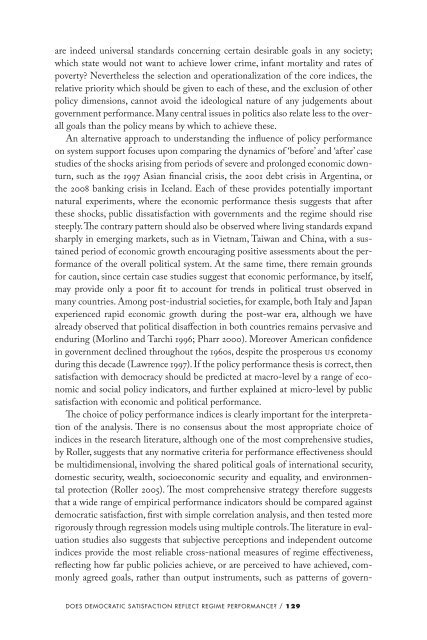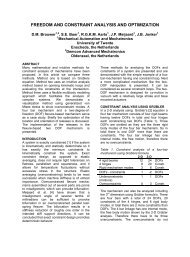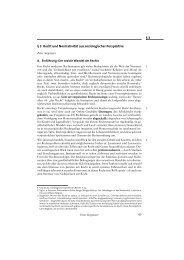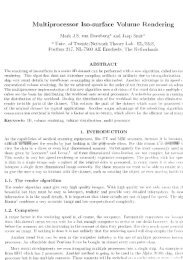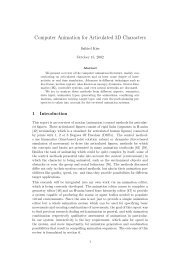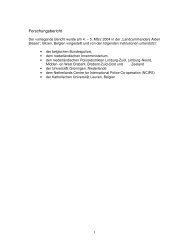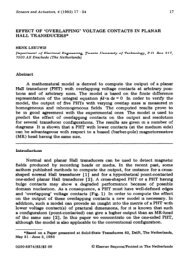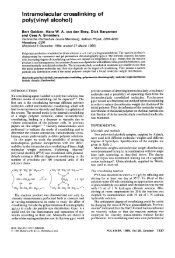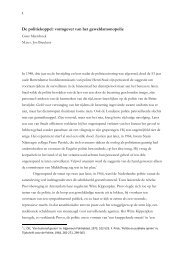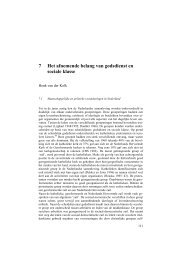download - UvA DARE
download - UvA DARE
download - UvA DARE
Create successful ePaper yourself
Turn your PDF publications into a flip-book with our unique Google optimized e-Paper software.
are indeed universal standards concerning certain desirable goals in any society;<br />
which state would not want to achieve lower crime, infant mortality and rates of<br />
poverty? Nevertheless the selection and operationalization of the core indices, the<br />
relative priority which should be given to each of these, and the exclusion of other<br />
policy dimensions, cannot avoid the ideological nature of any judgements about<br />
government performance. Many central issues in politics also relate less to the overall<br />
goals than the policy means by which to achieve these.<br />
An alternative approach to understanding the influence of policy performance<br />
on system support focuses upon comparing the dynamics of ‘before’ and ‘after’ case<br />
studies of the shocks arising from periods of severe and prolonged economic downturn,<br />
such as the 1997 Asian financial crisis, the 2001 debt crisis in Argentina, or<br />
the 2008 banking crisis in Iceland. Each of these provides potentially important<br />
natural experiments, where the economic performance thesis suggests that after<br />
these shocks, public dissatisfaction with governments and the regime should rise<br />
steeply. The contrary pattern should also be observed where living standards expand<br />
sharply in emerging markets, such as in Vietnam, Taiwan and China, with a sustained<br />
period of economic growth encouraging positive assessments about the performance<br />
of the overall political system. At the same time, there remain grounds<br />
for caution, since certain case studies suggest that economic performance, by itself,<br />
may provide only a poor fit to account for trends in political trust observed in<br />
many countries. Among post-industrial societies, for example, both Italy and Japan<br />
experienced rapid economic growth during the post-war era, although we have<br />
already observed that political disaffection in both countries remains pervasive and<br />
enduring (Morlino and Tarchi 1996; Pharr 2000). Moreover American confidence<br />
in government declined throughout the 1960s, despite the prosperous US economy<br />
during this decade (Lawrence 1997). If the policy performance thesis is correct, then<br />
satisfaction with democracy should be predicted at macro-level by a range of economic<br />
and social policy indicators, and further explained at micro-level by public<br />
satisfaction with economic and political performance.<br />
The choice of policy performance indices is clearly important for the interpretation<br />
of the analysis. There is no consensus about the most appropriate choice of<br />
indices in the research literature, although one of the most comprehensive studies,<br />
by Roller, suggests that any normative criteria for performance effectiveness should<br />
be multidimensional, involving the shared political goals of international security,<br />
domestic security, wealth, socioeconomic security and equality, and environmental<br />
protection (Roller 2005). The most comprehensive strategy therefore suggests<br />
that a wide range of empirical performance indicators should be compared against<br />
democratic satisfaction, first with simple correlation analysis, and then tested more<br />
rigorously through regression models using multiple controls. The literature in evaluation<br />
studies also suggests that subjective perceptions and independent outcome<br />
indices provide the most reliable cross-national measures of regime effectiveness,<br />
reflecting how far public policies achieve, or are perceived to have achieved, commonly<br />
agreed goals, rather than output instruments, such as patterns of govern-<br />
does democrAtIc sAtIsfActIon reflect regIme PerformAnce? / 129


